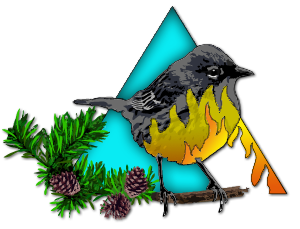Navigation

Keyword Lists
Standard keywords assigned to publications in the LSFSC citation database, in addition to author-assigned keywords:
Location and scope
Single-state keywords were used when study locations were either limited to a single state, or included ≥1 location in a single state as a contrast/comparison to very disparate locations:
Michigan
Minnesota
Wisconsin
Illinois
Indiana
New York
Ohio
Manitoba
Ontario
Quebec
For publications that included information from the Lake States region in broader regional-, national- or continental-scale analysis:
Lake States
Midwest
Eastern United States
Eastern North America
United States
North America
Canada
Type of fire:
Wildfire
Prescribed fire
Fire
Organisms or ecosystem components:
Common and/or scientific names of species were also assigned but are not listed here.
Air
Birds
Ecosystem processes
Fish
Fungi
Human health
Insects
Invasive species
Invertebrates
Mammals
Microorganisms
Pathogen
Pest
Soil
Vegetation
Water
Wildlife
Ecosystem type:
Barrens
Cropland
Forest
Grassland
Oldfield
Pasture
Peatland
Prairie
Roadside
Savanna
Sedge meadow
Shrubland (includes shrub-carr)
Urban
Wetland
Woodland
Topics:
Anthropogenic
Burn prescription
Climate
Conservation (of species dependent on fire or fire-maintained ecosystems)
Decision support (includes planning)
Economics
Fire behavior
Fire detection
Fire effects (pre/post, controlled studies, or comparisons between fire and other treatments)
Fire exclusion (long-term exclusion of fire, e.g., due to post-settlement land use changes)
Fire frequency
Fire history
Fire mapping (when maps of specific fire locations are given)
Fire prediction (including modeling or simulating the likelihood of fire occurring)
Fire prevention
Fire regime
Fire hazard and risk
Fire season
Fire severity
Fire suppression (fire suppression activities and operations; not used for long-term fire exclusion)
Fire surrogate (for non-fire treatments used as a surrogate for fire, including ecological forestry in fire-adapted ecosystem)
Forest management
Fuel treatments
Fuels
Harvest (includes harvest conducted before fire, and harvest treatments as comparisons to fire treatments)
Model
Presettlement
Recreation
Remote sensing
Restoration (of fire-dependent ecosystems)
Simulation
Site description
Social science (includes social impacts and public perception)
Species composition
Time effects (for chronosequence studies or repeated measurements)
Traditional practices
Vegetation change
Vegetation description
Wilderness
Wildfire regenerated (forest stands regenerated naturally following fire)
Wildland urban interface

.png)
